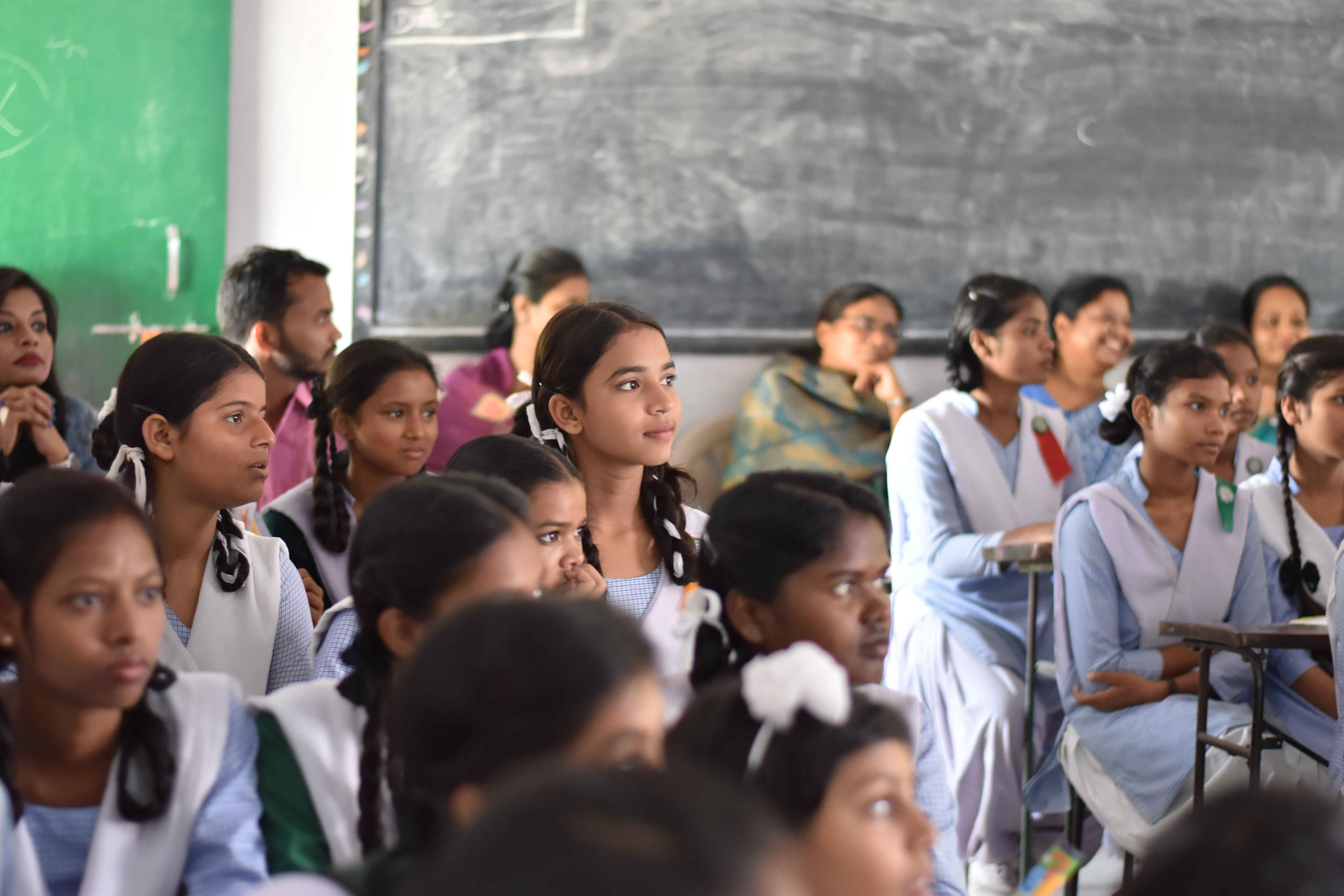A hundred miles away, Shivi, a 13-year-old girl, is dropping out of school. Why? Because she got her first period in school, leaving her with an embarrassing stain on her uniform and making her the talk of the town for the months that follow.
A lack of access to menstrual hygiene products leaves many girls like Shivi in such a situation. According to UNESCO, 23 Million girls drop out of school due to a lack of menstrual hygiene and awareness. Having no access to menstrual products, period education, hygiene facilities, waste management, or a mix of these causes many girls to lose a big part of their lives. This brings physical, mental, as well as emotional challenges. It can cause people to feel ashamed of menstruation and create a stigma that can make girls hide away. Often, women are forced to use leaves, ash, husk, sand, or dirty clothes during periods, increasing the chance of getting urinary tract and bacterial infections.
How can we help women that find themselves in unfortunate situations like these?
-
Support Period Education
Now that you know about the lack of Period Knowledge and how it affects women, it is time for you to speak up. Look around yourself, see if someone needs help with sanitary pads, teach young girls about the importance of hygienic products during periods, and be the voice of change.
-
Donate period products
Period products are not available for free, nor are they easily accessible to many women in India. If you can, donate sanitary pads to those in need.
Signing a petition or supporting a campaign is the easiest thing you can do. Numerous campaigns keep running across the world. You can be a part of them, raise awareness about periods, and be a part of the change.
Generating awareness and making period education accessible to people might take a lot of time, but it’s certainly not impossible. SOFY understands this and continually does its bit. As part of Unicharm’s initiative to nurture female entrepreneurs and promote the use of feminine hygiene products in rural India, we have set up female-owned shops to provide rural women with menstrual products. While we are playing our part, we hope that more people come forward to support Period Education in India.
FAQ’s
2. What are some unsafe alternatives used when sanitary pads aren't available?
When sanitary pads are unavailable or unaffordable, some girls resort to using unsafe materials like leaves, ash, sand, husk, or dirty cloth. These alternatives can cause serious health risks like infections and irritation. This underscores how vital it is to provide affordable, accessible hygiene options, and spread awareness to protect young women’s health and dignity.
3. How does lack of period knowledge affect girls in India?
Insufficient period knowledge often leads to fear, shame, or poor hygiene practices. Girls without proper awareness may not understand how to manage menstruation safely or know when to seek support. This lack of understanding can cause them to drop out of school or face infections. Education helps eliminate stigma and helps ensure girls grow up informed and confident.
4. What role can individuals play in improving sanitary pad access?
You can make a difference by supporting period education and raising awareness. Talk openly about menstruation, donate sanitary pads, or help run awareness campaigns. Even small actions—like reminding someone in need or supporting local drives—help improve access and reduce stigma for girls and women across communities.
5. How can donating sanitary pads help communities?
Donating sanitary pads helps bridge the gap in access for underprivileged girls and women. Since pads aren’t always affordable or available, donations allow those in need to manage their periods safely and cleanly. This simple act encourages healthy habits and builds confidence—especially in areas where resources are limited.
6. What initiatives is Sofy involved in to support menstrual hygiene in rural areas?
Sofy, as part of Unicharm’s initiative, has set up female-owned shops in rural India to supply menstrual products and empower women entrepreneurs. These local shops help improve access to hygiene products while promoting awareness about healthy period care in underserved communities.
7. Why is period education just as important as product access?
Period education helps girls understand menstruation, hygiene, and product use, reducing fear or embarrassment. Without education, even available products may be misused or avoided. Teaching the importance of hygiene during periods—along with how to use products correctly—prevents infections and supports girls’ health and school attendance.
8. How does poor menstrual hygiene affect a girl’s emotional health?
When girls face period stigma or lack proper products, they often feel ashamed or stressed. This emotional burden can make them hide at home, skip school, or avoid social activities. Access to education and hygiene items helps them manage periods with confidence and emotional peace, reducing anxiety and isolation.
9. What are the consequences of untreated menstrual infections from unhygienic practices?
Using unsanitary materials like dirty cloth or ash increases risk of urinary or reproductive tract infections. This may lead to health issues requiring medical care, and in some cases, long-term complications. Providing clean, safe menstrual products is essential to protect girls’ health and prevent such serious conditions.
10. How can communities start bringing change around period access?
Communities can take steps like organizing donation drives, raising awareness in schools, and supporting women-led shops offering menstrual items. Educating both girls and boys about hygiene and menstrual health breaks taboos. Over time, these small changes create an environment where having safe, affordable menstrual products is the norm.

